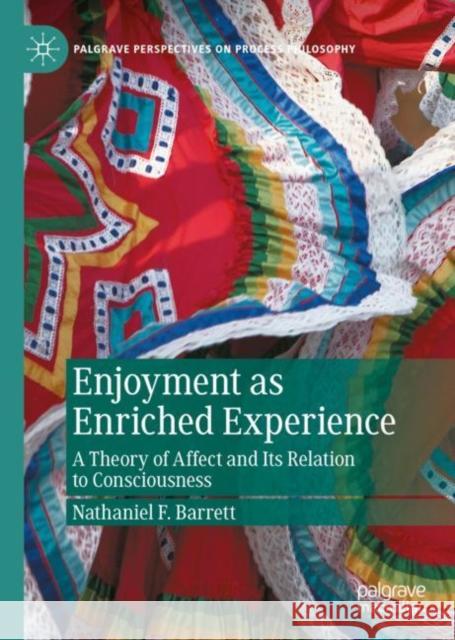Enjoyment as Enriched Experience: A Theory of Affect and Its Relation to Consciousness » książka
Enjoyment as Enriched Experience: A Theory of Affect and Its Relation to Consciousness
ISBN-13: 9783031137891 / Angielski / Twarda / 2023 / 376 str.
Enjoyment as Enriched Experience: A Theory of Affect and Its Relation to Consciousness
ISBN-13: 9783031137891 / Angielski / Twarda / 2023 / 376 str.
(netto: 498,38 VAT: 5%)
Najniższa cena z 30 dni: 501,19
ok. 16-18 dni roboczych.
Darmowa dostawa!
This book has two main tasks: (1) to call attention to the special challenges presented by our experience of affect—all varieties of pleasure and pain—and (2) to show how these challenges can be overcome by an “enrichment approach” that understands affect as the enrichment or deterioration of conscious activity as a whole. This “enrichment approach” draws from Alfred North Whitehead as well as the pragmatists John Dewey and William James, all of whom thought of affect as a fundamental aspect of experience rather than a special class of feelings. It also draws from recent scientific research that suggests that the dynamic repertoire of consciousness can change, effectively expanding and contracting our capacity to feel. Weaving these perspectives together, the book develops a theory that accounts for the peculiar phenomenology of affect and sheds new light on a diverse range of experiences, from everyday pleasures and pains to the special satisfactions of the arts and religious festivity. At the same time, it presents a fresh and distinctively affect-centered perspective on the nature of consciousness.
This book has two main tasks: (1) to call attention to the special challenges presented by our experience of affect—all varieties of pleasure and pain—and (2) to show how these challenges can be overcome by an “enrichment approach” that understands affect as the enrichment or deterioration of conscious activity as a whole. This “enrichment approach” draws from Alfred North Whitehead as well as the pragmatists John Dewey and William James, all of whom thought of affect as a fundamental aspect of experience rather than a special class of feelings. It also draws from recent scientific research that suggests that the dynamic repertoire of consciousness can change, effectively expanding and contracting our capacity to feel. Weaving these perspectives together, the book develops a theory that accounts for the peculiar phenomenology of affect and sheds new light on a diverse range of experiences, from everyday pleasures and pains to the special satisfactions of the arts and religious festivity. At the same time, it presents a fresh and distinctively affect-centered perspective on the nature of consciousness.











